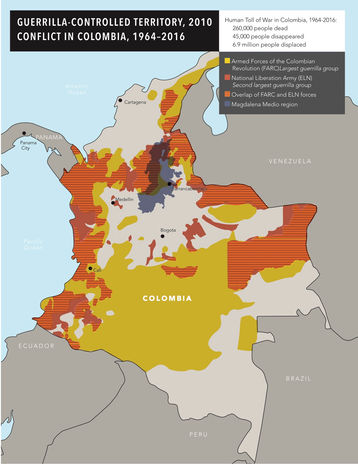Click each map for captions.
About the Book

God's Diplomats:
Pope Francis, Vatican Diplomacy, and America's Armageddon
by Victor Gaetan
Using inside sources, maps, and extensive field reporting about the secretive, high-stakes world of international diplomacy, Victor Gaetan takes readers to the Holy See to explicate Pope Francis' diplomacy, show why it works, and to offer readers a startling contrast with recent U.S. international decisions, especially its militarized approach to foreign policy. Francis has not shied away from going toe-to-toe with the United States, whether the hotspot is:
-
Ukraine: Francis refuses to demonize Russia, cultivating it as a valued Christian ally while discouraging conflict as “fratricide”
-
Syria: Francis deferred to—and encourages—regional Christian leaders who rallied around President Bashar al-Assad
-
Iran: Like his predecessors, Francis maintains strong relations with Shia leaders (in Iran, Iraq, Lebanon) and counsels against isolating Tehran
-
Sunni-majority countries: Walking in Saint Francis' steps and opposing endless wars, Francis engaged Sunni religious and political leaders (in Egypt, UAE, Saudi Arabia, Morocco, and elsewhere) and signed a Declaration for World Peace and Living Together with Grand Imam of al-Azar Ahmed al-Tayeb.
-
Palestine: Choosing to pray against a barrier wall proclaiming, “Free Palestine” while in the Holy Land, Francis signed the Vatican’s first bilateral agreement with Palestine, and opposed the US embassy’s move to Jerusalem, considered uniquely universal and the "Trump Peace Plan" (which would have granted additional West Bank territory to Israel), supporting a “two-state” solution
-
South Sudan: As Washington used pointless sanctions to pressure political leaders, Francis kissed their feet and prayed them into a unity government—which has held together
-
Colombia: With a peace deal on the line, and to put an end to five decades of devastating killings, destruction, and narco-trafficking, Francis brought together the current (at the time) president and his predecessor—then at each other’s throat—to find a successful path forward
-
China: Despite being chastised by the likes of Secretary of State Mike Pompeo and gadfly Steve Bannon, Francis renewed an agreement with Beijing in 2020 (originally signed in 2018) recognizing a joint process for selecting bishops, giving the pope the final say
The Story
Gaetan explains the institutional assets Francis gained by becoming pope: a highly flexible network at work on behalf of Rome’s international goals; unity in its definition of mission; the oldest diplomatic school, founded in 1701 that teaches a practice stretching back for centuries; and sovereign status, recognized by other nation states, including integration in the United Nations.
Although Vatican City is a land island located in Italy (smaller than the Pentagon and its parking lot), the Holy See under Pope Francis no longer has a Western European outlook. He is deeply frustrated with Western powers, especially the US, as arms merchants fomenting conflict. He sees little difference between the imperial pretenses of the US, or Russia, or China.
Francis functions from a position of impartiality, which has allowed him to facilitate breakthroughs such as the US-Cuban normalcy agreement of December 2014—as explained in chapter 7 of God’s Diplomats.
This same impartiality has worked in numerous regional settings such as the Catholic Church’s ability to step into tension between Beirut and Riyadh in 2017 when Lebanon’s prime minister resigned (strangely, from Saudi Arabia) and Saudi royalty ordered its citizens to leave Lebanon, a topic in chapter 10.
Although it can’t be proven—yet—Gaetan believes much of the relentless criticism of Pope Francis, largely emanating from the US, has ties to misguided deep state attempts to undercut a rival power.
Francis criticizes globalism for suppressing national and local culture. He describes the best image of the world as “not a sphere but a polyhedron,” like a soccer ball, which allows the autonomy of separate shapes, within the whole. Although this imagery is unusual, God’s Diplomats explains how Francis’ diplomatic rules of thumb are in sync with Catholic classics such as the 1716 On the Manner of Negotiating with Princes by Francois de Callières, the go-to textbook for diplomats in the eighteenth century.
History, contemporary journalism, and Catholic theology are well blended in this unusual book.


















